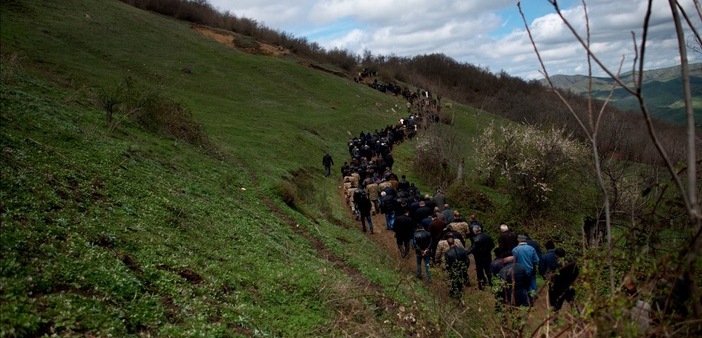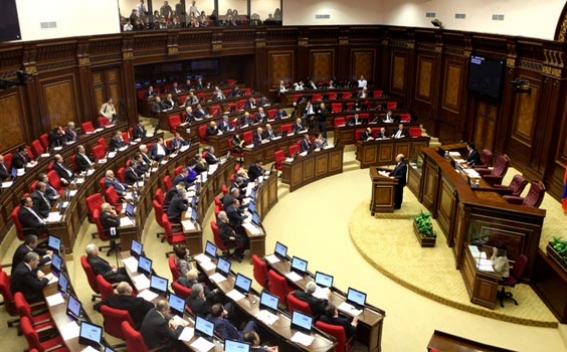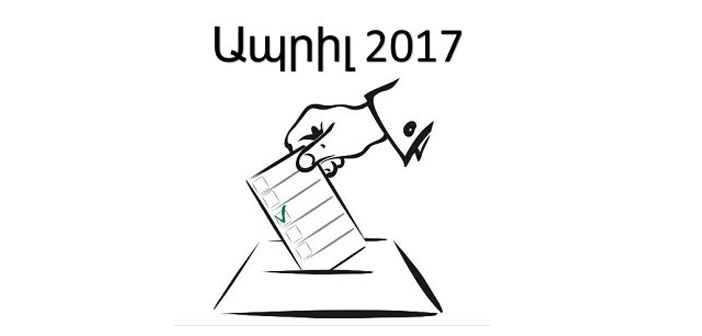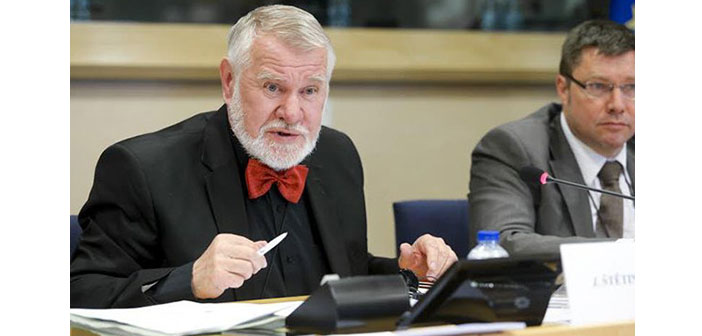Tevan Poghosian, who is a member of Armenian parliament since 2012 and served as the Washington representative of Karabakh between 1997-1999, assessed the developments about Karabakh.
Why did Azerbaijan chose to attack with heavy arms now?
Azerbaijan's visit to the US didn't went very well. They were not welcomed as they wished and couldn't have met as many people as they wanted. Things are going bad also inside the country and the month of April has a significance. The lifting of the embargo on Iran and losing the monopoly on the gas accelerated the adventure.
Apart from that, there is a more important issue. When Russia took a step in Syrian politics, some experts claimed that Russia went all in in order to distract the international public opinion from Caucasus and not to lose its important role in the region. These claims are of course partly correct. Now, things are getting complicated in Middle East and Turkey loses reputation. And the entire world knows that Turkey is responsible for the current situation in Middle East.
I think that Turkey, because of its failure both in internal and international politics, convinced Aliyev, whom they call “brother”, to act in contrast to Russia's maneuver of distracting the world from Caucasus. There is of course a purpose of having a part in Caucasus. At least in southern Caucasus, Turkey doesn't seem to be in the game and tries to change this. Statements of Kerry and Lavrov supports this. After Turkey's “We are with Azerbaijan” statements, a common declaration is released which says, “Nobody should intervene in this situation.”
Do you consider Azerbaijan's Karbakh move as a plan? Is there a chain of command?
This is a system, a matrix. Aliyev, from the beginning, put the internal and international politics aside and has been planning for getting Karabakh back. It is like his childhood dream... Given this situation, when someone comes and says, “Now's the time”, he gets excited. The US didn't welcome them with open arms, though Azerbaijan made some gestures like releasing the political prisoners, but that changed nothing. Everybody says, “Resolve this issue peacefully.” However, Azerbaijan has no strong hand in the negotiations.
The US didn't attended the scheduled Minsk Group meetings. And the presidents who seemed like Azerbaijan's friends fanned the flame instead of urging Azerbaijan to act wisely in this ceasefire. And we saw the results.
What will Armenia do? What should it do?
It is a difficult situation, because we have to tell that what is happening now is unrealistic. We have to make them stop this adventurism. Azerbaijan would consider itself successful, if it could manage to take the tiniest piece of land from Karabakh. We will try to prevent this. For us, the most important issue is to protect the civilians in Karabakh. It should be emphasized that this is not about land, this is about self-determination.
We have to take lessons and determine the situation right. If Aliyev continues to pose threats and doesn't want peaceful policies, we have to consider that he won't come to table and support Minsk Group. We have to be prepared for the attacks. I think that Azerbaijan's actions is useful in the sense that the world came to understand the real problem in Karabakh. For a year, we have been trying to explain that Azerbaijan violates the ceasefire and poses threats. Now, it is understood what Azerbaijan is capable of. International observers should come to Karabakh. Making evaluations from a distance doesn't help.
On April 5, a ceasefire was declared. In fact, on April 3, Azerbaijan declared a unilateral ceasefire, but started attacking again 30 minutes after the announcement. Should we be prepared for war?
This time, we saw that there is no security zone. They came to the border and tried to kill civilians with tanks. We once again understood that there is no other power to protect us but the Karabakh army. We have to accept the fact that the war hasn't come to an end in 1994, it still goes on. In 20 years, we saw this several times. There has always been attacks, especially around April 24 and on holidays. Though it is really difficult, we have to get accustomed to this situation. We are always in the state of war.





